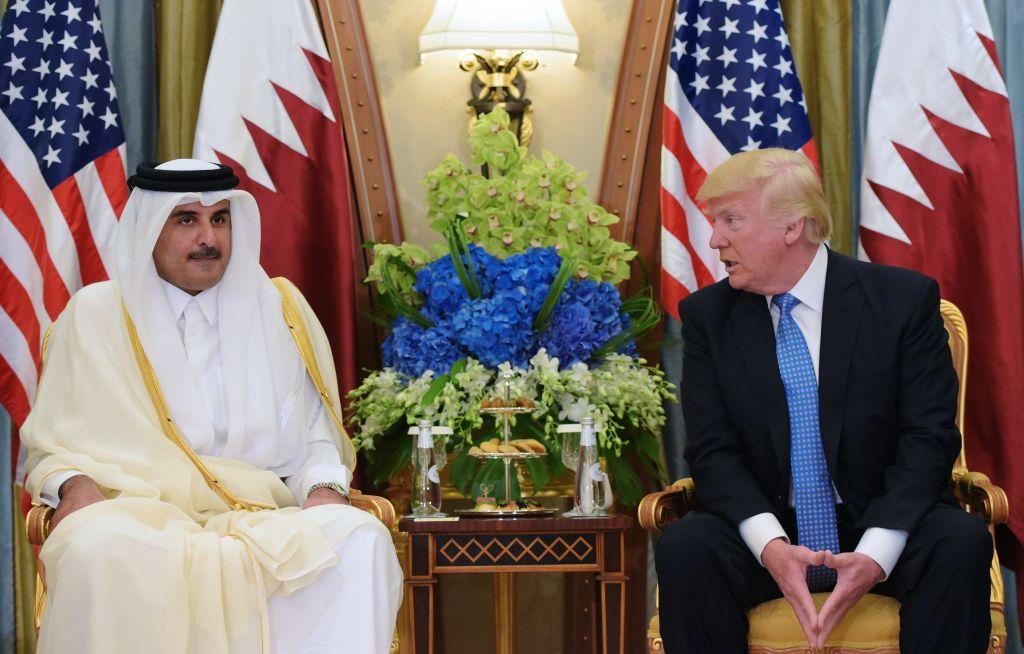Qatar's state news agency blames hackers for fake news story praising Israel and criticising allies
Publication of false statements attributed to Emir Thani leads to ‘media war’ between Gulf nations

Your support helps us to tell the story
From reproductive rights to climate change to Big Tech, The Independent is on the ground when the story is developing. Whether it's investigating the financials of Elon Musk's pro-Trump PAC or producing our latest documentary, 'The A Word', which shines a light on the American women fighting for reproductive rights, we know how important it is to parse out the facts from the messaging.
At such a critical moment in US history, we need reporters on the ground. Your donation allows us to keep sending journalists to speak to both sides of the story.
The Independent is trusted by Americans across the entire political spectrum. And unlike many other quality news outlets, we choose not to lock Americans out of our reporting and analysis with paywalls. We believe quality journalism should be available to everyone, paid for by those who can afford it.
Your support makes all the difference.The alleged targeting of Qatar’s state-run news agency by hackers who published controversial statements attributed to the country’s monarch has led to renewed tensions in the Gulf.
The supposedly fake report, published late on Tuesday, quoted Emir Tamim bin Hamad al-Thani, the Emir of Qatar, on a number of sensitive regional issues and Doha’s relationship with Donald Trump.
Mr Thani was quoted as saying “there is no wisdom in harbouring hostility towards Iran” and that his relationship with the Trump administration was “tense” despite a positive meeting between the two leaders in Riyadh, the Saudi Arabian capital, on Sunday. The report also claimed that Mr Thani did not believe the US President would last long in power.
Qatar’s ties to Israel were “good”, the alleged false story quoted the sovereign as saying, and that he hoped to help broker a peace deal in the Arab-Israeli conflict. The story attributed to the ruler positive statements about Lebanese militant group Hezbollah and Gaza-based extremist organisation Hamas.
The remarks were allegedly made during a speech the Emir gave at a military academy graduation ceremony on Tuesday.
The unknown hackers are also accused of briefly gaining control of the agency’s Twitter account, posting three messages attributed to Qatar’s foreign minister ordering the removal of other Gulf nations’ ambassadors to the country within 24 hours – claims later dismissed by the authorities.
The comments were picked up by several other news outlets and broadcasters in the Arab world, and met with a particular storm of criticism in Saudi Arabia and the United Arab Emirates.
On Wednesday authorities in Riyadh and Abu Dhabi blocked the main website of Qatar’s Al Jazeera broadcaster, which the two countries have often seen as being critical of their governments.
The development signalled a possible revival of a 2014 rift between Qatar and its neighbours over Doha’s backing of the Islamist Muslim Brotherhood, and suggests behind-the-scenes disarray among US Gulf allies despite the positive sentiments expressed during Mr Trump’s visit to Riyadh last week.
Disputes between Arab states of the Gulf can have significance far beyond their energy-rich region.
Qatar, Saudi Arabia and the UAE have used their oil and gas revenues to influence events in other Middle Eastern countries, and rifts between them can alter the political environment in Libya, Egypt, Syria, Iraq and Yemen.
A statement from Doha issued on Wednesday said that the Qatar News Agency website was hacked by an “unknown entity” and that “a false statement attributed to His Highness has been published”. An investigation into the alleged incident was under way, and those responsible would be held accountable, the government communications office continued.
The incident is not the first time Qatari organisations have been targeted by cyber criminals, Doha News reported.
An attack on the Qatar National Bank in 2016 leaked more than 1,200 customers’ details into the public domain, and several other hacks on official websites in recent years have redirected traffic or illegally collected user data.
Reuters contributed to this report
Join our commenting forum
Join thought-provoking conversations, follow other Independent readers and see their replies
Comments